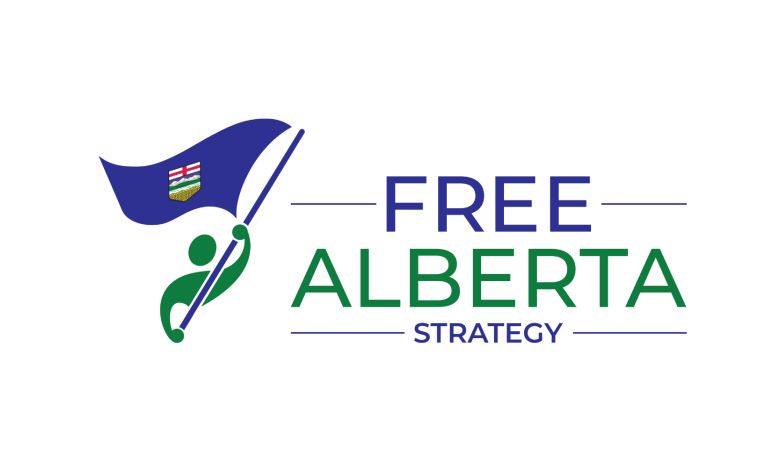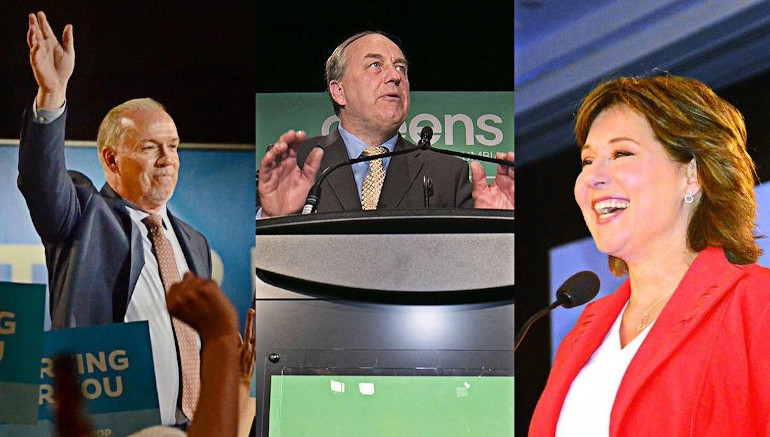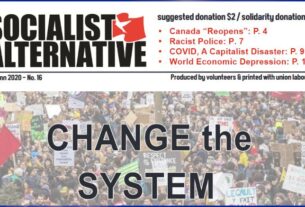The new leader of the misnamed United Conservative Party and the new premier of Alberta, Danielle Smith, has been propelled to power by insurgent right populism in the party. The leadership race revealed a deep split in the party, where Smith won by just 53.8 percent on the sixth count of the votes, compared to the more centrist Toews’ 46.2 percent. Jason Kenney resigned as party leader after receiving 51 percent during his May leadership review. The UCP will now either unite behind Smith or suffer an easy defeat against the much more united NDP next May. The party’s shift further to the right reflects deepening polarization in Canadian politics.
Smith is, in essence, an American-style Libertarian. Her leadership campaign revolved around provincial sovereignty (the Alberta Sovereignty Act) and the latest anti-vaxxer talking points, complete with vague notions of “freedom” and blaming Ottawa and Trudeau for the state of the Alberta economy. Smith won power by appealing to the most energized elements of the right but has already backtracked and muddied the waters on what the Alberta Sovereignty Act will be able to accomplish.
Taking a long view of events, Smith and other elements of the Wildrose Party have successfully led the populist right in taking over the mainstream conservative party. The UCP was a merger of the Wildrose and the Progressive Conservatives — now, the old Wildrose faction is taking the reins in the aftermath of Kenney’s resignation.
Kenney’s resignation was not the product of an outcry from the left or unions but was the result of his own political mistakes and zigzags. His poor leadership threatened the ability of the party to survive an election in 2023. Unfortunately, there was no substantial left-wing campaign to kick Kenney and the UCP from office when it was on the ropes. The Alberta Federation of Labour agitated for a general strike but rapidly abandoned that notion. Alberta’s NDP, supported by most unions, but campaigning without a class-struggle approach, clearly prefers to wait until the 2023 election. This lackluster strategy has created opportunities for the UCP, now with money to spend as revenue is up due to soaring oil prices, to reverse its fortunes and possibly even win the next election, just seven months away.
Alberta Sovereignty
The Alberta Sovereignty Act is part of the Free Alberta Strategy, a platform cooked up by Rob Anderson, Barry Cooper and Derek From. The Strategy includes creating an Alberta Provincial Police Force, the Alberta Independent Banking Act, and the Alberta Judicial Independence Act. The Strategy aims to end equalization payments, establish an Alberta Revenue Agency, establish an Alberta Pension Plan (an idea already rejected by Albertans), and set up provincial unemployment insurance. This legislation would be advantageous for a government relentlessly attacking health care, education, social programs, unions, and workers’ rights. It also threatens to create an expensive new bureaucracy as federal agencies and programs become duplicated at the provincial level, losing their economy of scale. It certainly won’t improve the economy for workers as the cost of living continues to climb and corporations rake in profits. At best, it will not affect the problems workers face; at worst, it will make life more expensive when Albertans are most concerned with the rising cost of living and access to health care.
The federal carbon tax, an ineffective means of fighting climate change, is held up by Smith and the populist right as the primary cause of the difficult times faced by Albertans. While it’s true that the Liberal’s taxes aren’t helping working people, stagnant wages in the face of inflation and record corporate profits are the real problems; the cost of living is too high compared to wages. Increasing the minimum wage to at least $20 an hour, with no exemptions, putting a price cap on groceries and raising taxes on profit-gouging corporations, such as oil and grocery companies, to fund public services would do far more to improve life for Albertans than waging a jurisdictional war against the federal government.
It is doubtful that an Alberta Sovereignty Act would survive legal challenges. Or would Smith ignore a decision by Canada’s Supreme Court? Even many in the business community oppose the idea as it will add to costs for them, deter investors and weaken the economy. In the leadership campaign, four candidates derided the idea, and they gained more votes in the first round of that ballot, 44.2 percent, compared to Smith’s initial 41.3 percent. Kenney said the idea was “cockamamie” and would lead to economic and legal chaos.
For its part, the UCP has exacerbated the cost-of-living crisis by making it harder for workers to afford day-to-day expenses. Since the UCP’s so-called “Job Creation Tax Cut” worth $4.7 billion to big business in June 2019, part-time jobs are growing three times faster than full-time jobs. Over the last seven years, average household income has decreased by $6,000; additionally, prices have increased twice as fast as wages, exposing the lie that demanding higher wages will make life more expensive. Only Ontario has worse income inequality. The UCP also made it harder for workers to join a union when they eliminated card-check legislation.
Western Alienation?
One explanation for rightward shifts in the west is that western provinces are getting a raw deal and people are feeling burnt — the idea of western alienation. Right populists, like Danielle Smith, thrive on people’s feelings of alienation, but they also feed into its narrative and provide false solutions. However, western alienation is a misdiagnosis of the problem; instead, westerners are experiencing rural alienation under capitalism. There is a widespread feeling in rural areas that they provide much and get little back. Right populism takes peoples’ valid feelings of alienation experienced under capitalism and redirects them into support for a right-wing project.
From small cities to even smaller towns and villages, rural communities provide the labour for commodifying natural resources like lumber, natural gas, petroleum, minerals, and metals. The vast majority of food and water comes from rural areas. But because it’s not profitable, rural communities do not receive equitable public services under capitalism, negatively impacting their overall quality of life. Worse still, workers in these communities are typically at the mercy of only a handful of employers — often fossil fuel companies. A socialist program would reemphasize the welfare of rural communities by listening to what they need and providing a baseline of universal services and jobs for every community. Such a program would address transportation and infrastructure, and access to education, internet, housing, health care, and recreation. It would also provide massive public investment and well-paid union jobs in clean, renewable energy, retrofits, sustainable housing, freight, and transport.
Looking Ahead
The confidence of the right is growing; ever since the so-called “Freedom Convoy,” they have felt pumped. The rise of Smith and Pierre Poilievre demonstrates ascendant right populism in Canada. What is lacking is a bold response from unions and the NDP to put forward a program that meets the needs of the working class.
Picking jurisdictional fights with Ottawa or kicking out the Liberals and replacing them with the Conservative Party led by Poilievre won’t do the trick — it is just grasping at straws. The capitalist system is the problem, and the answer is socialism. Join Socialist Alternative in the fight for a socialist transformation.




